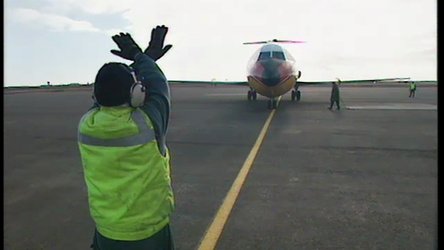
Satellite Navigation Story 2 (English)
Second in a four-part series about satellite navigation. This is the International version which carries international sound and no commentary. The 4 minute A-roll, which is complemented by a longer B-roll, outlines the functioning and the limitations of the US-American GPS system and what the proposed civilian, Euopean system Galileo, would contribute to the safety of transport, notably commercial air traffic and cars. The B-roll includes a wide variety of additional footage on all modes of transport: air, land, sea and maritime.
A-Roll (Script)
0.00
If you want to find your way around in a city abroad, you've got two possibilities. Either you take a cab and have yourself driven to your destination in comfort, or you try to make your own way, pore over the street map and rely on help from strangers. But there is a third option.
0:22
A stroll through the city could look like this: with a small navigation aid in your pocket, you can find your way to any destination ? and back to your car or to the station. That is, unless you can't get the GPS satellite signal, which does sometimes happen.
0:39
Actuality Hans Fromm, ESA: three problems with GPS; military, imprecise, not optimised for Europe since far to the North, inadequate availability. (transcription required)
1:08
Now, working with the European Commission and Eurocontrol, the European Space Agency ESA has developed a new technology that offers a solution. In co-operation with Fiat, they've tested the first prototype system in a car. It's not just much more precise than GP






